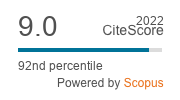Worldwide infectious diarrhoea, mainly caused by rotavirus and enterotoxigenic Escherichia coli (ETEC), accounts for a large part of deaths in children. ETEC is also the main cause of traveller's diarrhoea. Probiotics are promising for prevention and treatment of diarrhoea, but there is insufficient evidence to support the use of any specific probiotic or probiotics in general. Because of the sensitivity of suckling and weaned piglets for ETEC, piglets are a good model for infectious diarrhoea in infants and traveller's diarrhoea. Just as in human the efficacy of probiotics in diminishing diarrhoea and improving growth in suckling and weaned piglets is not uniform. A piglet model of infectious diarrhoea provides access to intestinal compartments that are not easily accessible in infants. In an in situ piglet model of secretory diarrhoea, the functional physiological response to ETEC and the concomitant host genome response to ETEC and probiotics may be tested. This will provide new insights in the complex crosstalk between ETEC, probiotics and the gut in the future.
Small intestinal segment perfusion test in piglets: future applications in studying probiotics-gut crosstalk in infectious diarrhoea?
J. van der Meulen Related information
1 BioMedical Research of Wageningen UR, P.O. Box 65, 8200 AB Lelystad, the Netherlands
, M. Hulst Related information2 Animal Breeding and Genomics Centre, Animal Sciences Group of Wageningen UR, P.O. Box 65, 8200 AB Lelystad, the Netherlands
, M. Smits Related information2 Animal Breeding and Genomics Centre, Animal Sciences Group of Wageningen UR, P.O. Box 65, 8200 AB Lelystad, the Netherlands
, T. Schuurman Related information1 BioMedical Research of Wageningen UR, P.O. Box 65, 8200 AB Lelystad, the Netherlands
Beneficial Microbes: 1
(4)- Pages: 439 - 445
Published Online: December 14, 2010
Abstract
Keywords: infectious diarrhoea, infants, piglet, probiotics
2022 Journal Impact Factor
5.4
source: Journal Impact Factor 2023™ from Clarivate™

Institutional Offers
For institutional orders, please contact [email protected].
-
A.A. Hibberd, C.C. Yde, M.L. Ziegler, A.H. Honoré, M.T. Saarinen, S. Lahtinen, B. Stahl, H.M. Jensen and L.K. Stenman
-
E.E. Blaak, E.E. Canfora, S. Theis, G. Frost, A.K. Groen, G. Mithieux, A. Nauta, K. Scott, B. Stahl, J. van Harsselaar, R. van Tol, E.E. Vaughan and K. Verbeke
-
K. Venema, J. Verhoeven, C. Beckman and D. Keller
-
E. Arvidsson Nordström, C. Teixeira, C. Montelius, B. Jeppsson and N. Larsson
-
J.E. Haarhuis, A. Kardinaal and G.A.M. Kortman
-
E.E. Blaak, E.E. Canfora, S. Theis, G. Frost, A.K. Groen, G. Mithieux, A. Nauta, K. Scott, B. Stahl, J. van Harsselaar, R. van Tol, E.E. Vaughan and K. Verbeke
-
K. Lippert, L. Kedenko, L. Antonielli, I. Kedenko, C. Gemeier, M. Leitner, A. Kautzky-Willer, B. Paulweber and E. Hackl
-
K. Tsilingiri and M. Rescigno
-
M. Ozen and E.C. Dinleyici
-
Y. Kobayashi, T. Kuhara, M. Oki and J.-Z. Xiao



